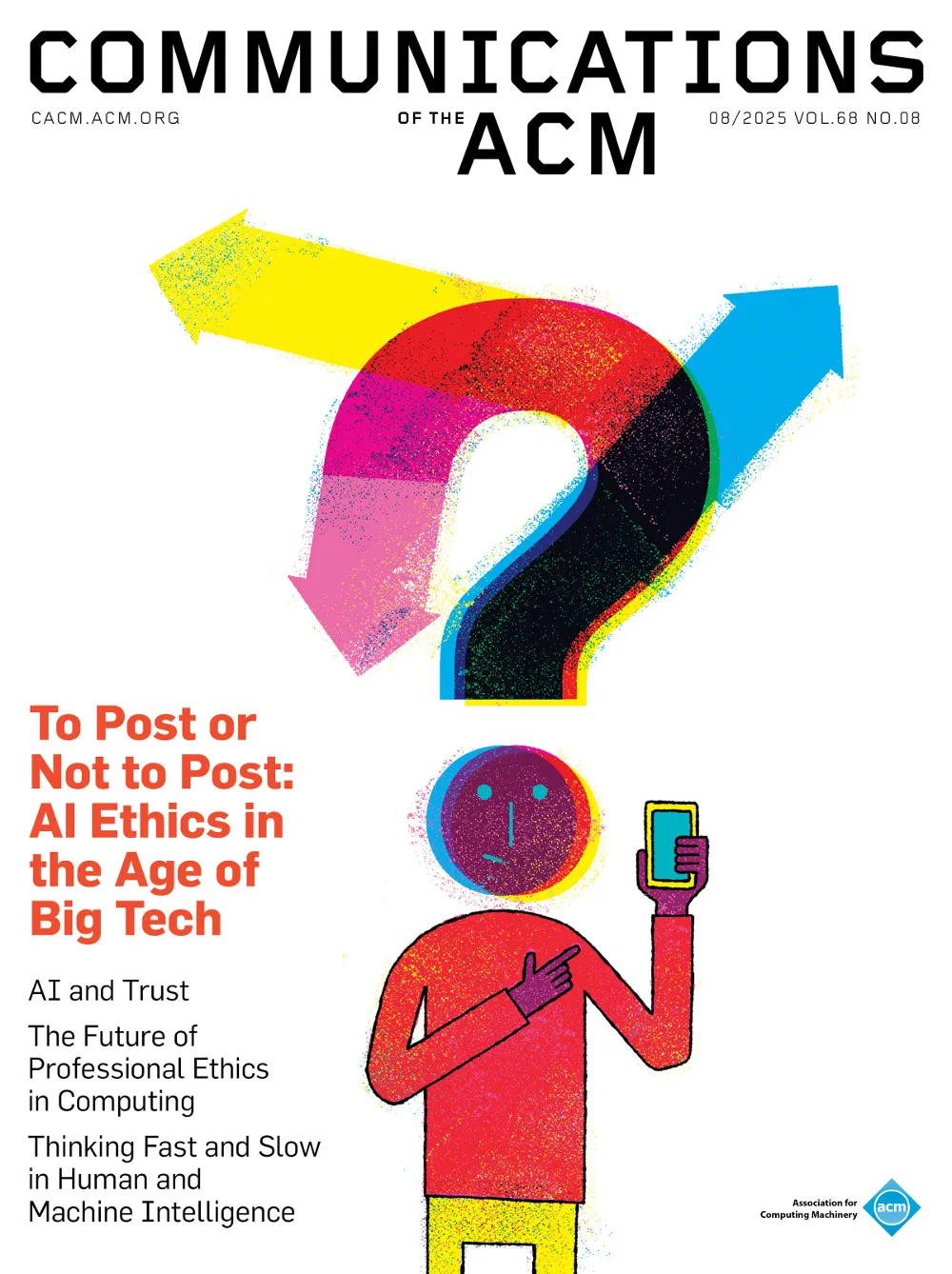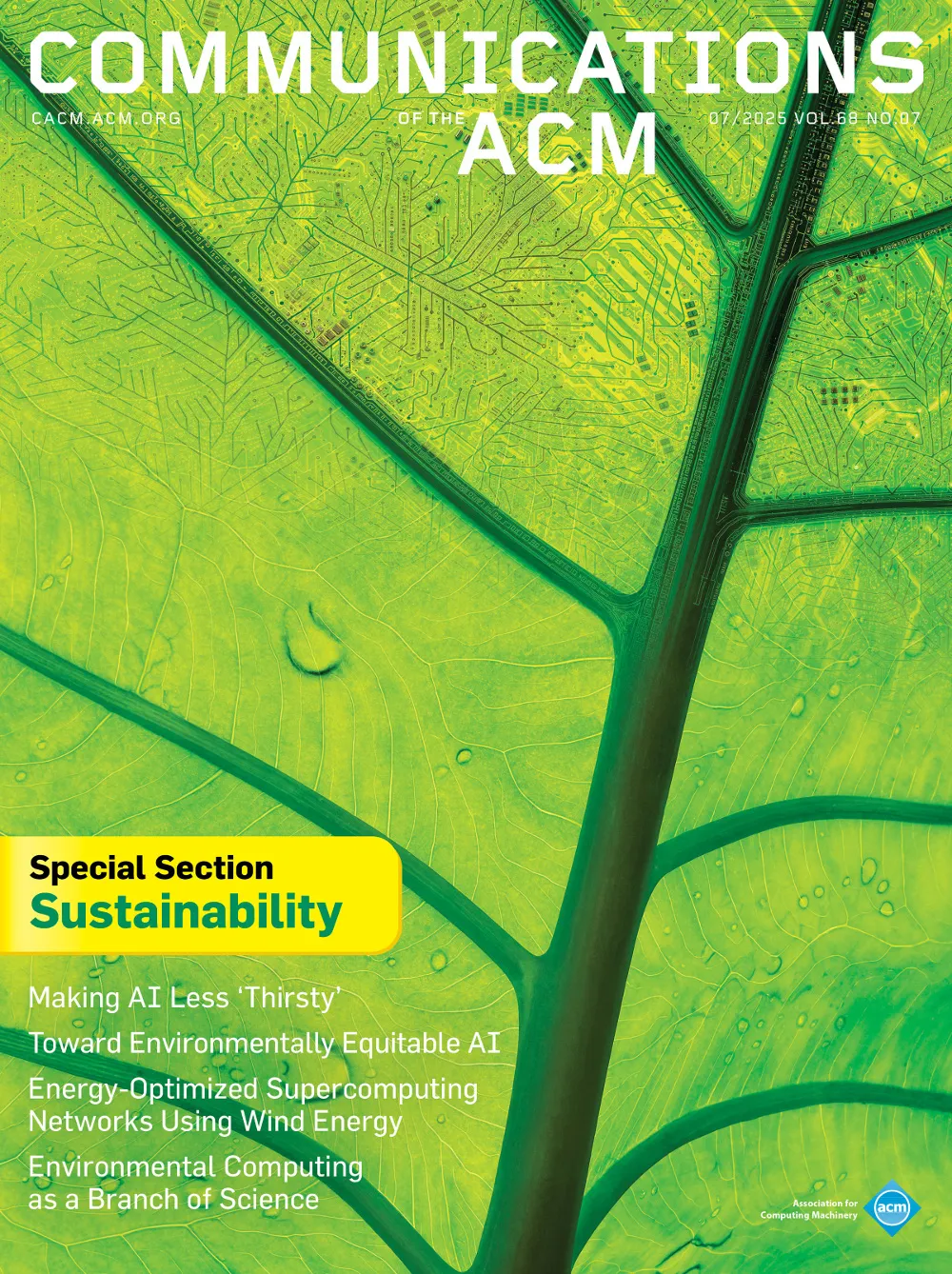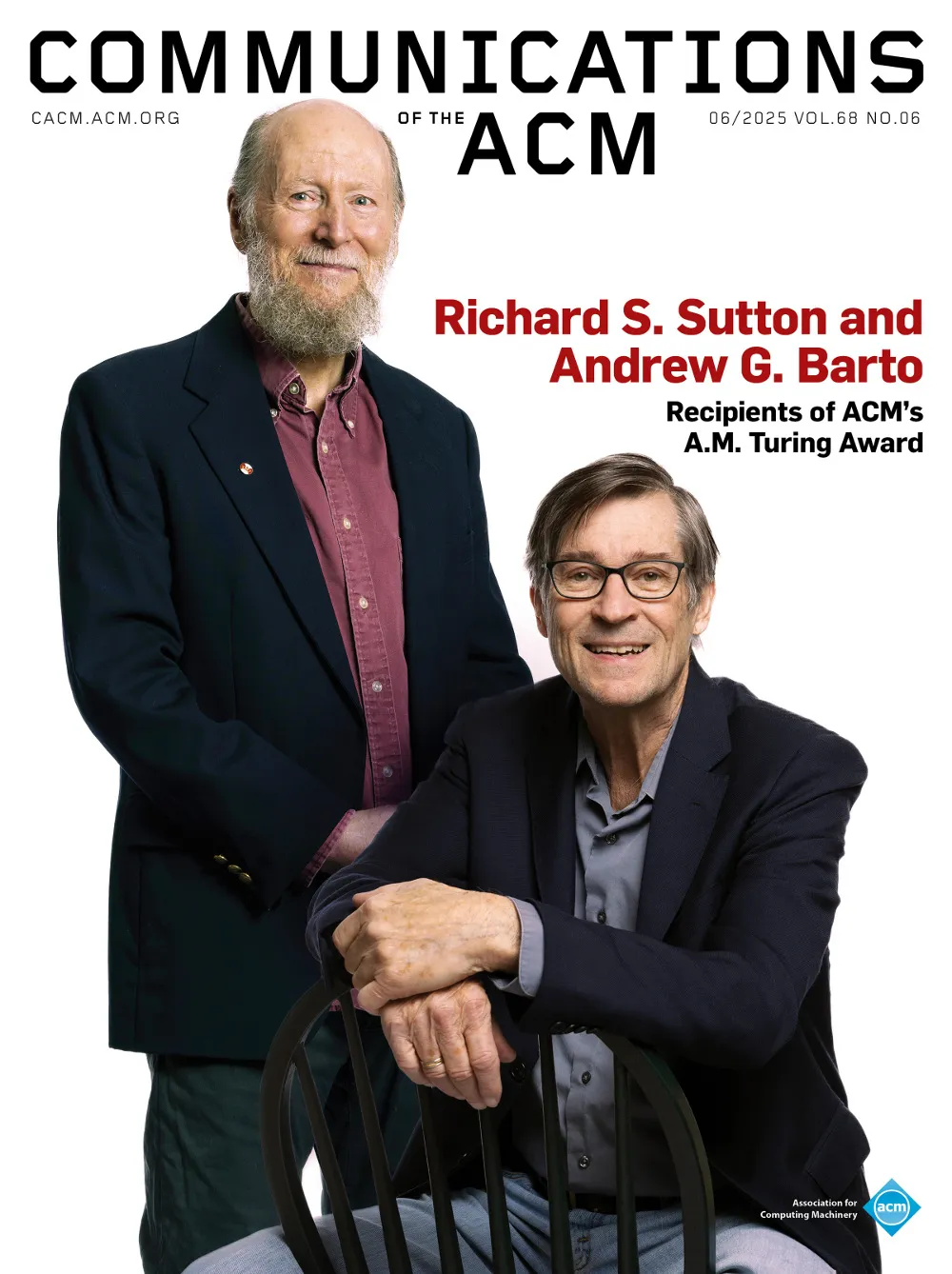March 2007 - Vol. 50 No. 3

Features
ACM A.M. Turing Award Nominations Solicited
Fixing Federal E-Voting Standards
SIGs Announce Candidates For Election
Agent-Based Systems For Disaster Management
Collaborative Adhocracies and Mix-and-Match Technologies in Emergency Management
Communication Challenges in Emergency Response
Online Forums Supporting Grassroots Participation in Emergency Preparedness and Response
Public Warning in the Networked Age: Open Standards to the Rescue?
Open Source Software For Disaster Management
The 7 Habits of Highly Effective Technology Leaders
Time-Critical Information Services
Theoretical Reflections on Agile Development Methodologies
The Effects of Online Advertising
Envisioning Intelligent Information Technologies Through the Prism of Web Intelligence
The Sarbanes-Oxley Act: Implications For Large-Scale IT Outsourcing
Top 10 Downloads from ACM’s Digital Library
The (Un)Predictability of Computer Science Graduate School Admissions



